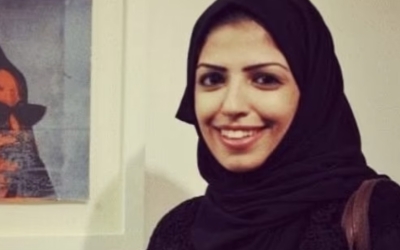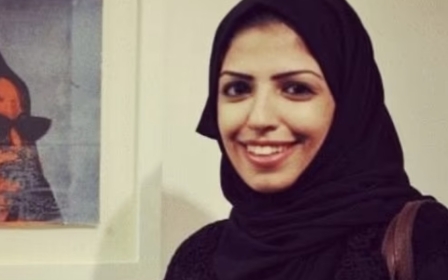Saudi fitness instructor jailed for 11 years over clothing and women's rights support

Saudi Arabia has sentenced 29-year-old fitness instructor Manahel al-Otaibi to 11 years in jail because of her choice of clothing and women’s rights advocacy, two rights groups said on Wednesday.
According to Amnesty International and the Alqst rights group, the notorious Specialised Criminal Court (SCC) sentenced Otaibi during a secret hearing on 9 January, but the decision only became known weeks later in an official reply by the Saudi government to a request for information by UN experts about the case.
“The decision directly contradicts the authorities’ narrative of reform and women’s empowerment,” the rights groups said in a statement.
Otaibi is facing charges relating to opinions she voiced online as a social media influencer and also for wearing “indecent clothing”, the groups said.
This included posts calling for an end to Saudi Arabia’s male guardianship system, and others where she appeared publicly without the traditional Saudi women’s dress (abaya).
Stay informed with MEE's newsletters
Sign up to get the latest alerts, insights and analysis, starting with Turkey Unpacked
Otaibi’s sister, Fawzia, is facing similar charges, but she fled Saudi Arabia in 2022 fearing detention.
Otaibi was detained on 16 November 2022 and is currently held at Malaz Prison in the capital Riyadh. In April, she informed her family that she had been held in solitary confinement with a broken leg and was being held in inhumane conditions.
The rights advocate has been convicted of “terrorist offences” under articles 43 and 44 of the Saudi counter-terrorism law, which criminalises “any person who, by any means, broadcasts or publishes news, statements, false or malicious rumours, or the like for committing a terrorist crime”.
Bissan Fakih, Amnesty International’s campaigner in Saudi Arabia, said Otaibi's conviction is “an appalling and cruel injustice".
She added that Otaibi has faced a range of abuses since her arrest, including enforced disappearance for over five months and physical abuse by prison officials.
“With this sentence the Saudi authorities have exposed the hollowness of their much-touted women’s rights reforms in recent years and demonstrated their chilling commitment to silencing peaceful dissent,” Fakih said.
'Contradictory reforms'
Saudi human rights defenders and lawyers have accused Crown Prince Mohammed bin Salman of overseeing a crackdown on social media users following his ascent to power in 2017 and the introduction of notorious judicial bodies such as the SCC.
The counterterrorism law used to convict Otaibi was passed shortly after Bin Salman became crown prince. Human Rights Watch has criticised the law for its broad definition of terrorism.
Similarly, two new bodies used to suppress activists - the Presidency of State Security and the Public Prosecution Office - were established by royal decrees in the same year.

In August last year, the SCC sentenced a schoolgirl, Manal al-Gafiri, to 18 years in prison for posting tweets supportive of political prisoners in the kingdom.
Mohammed al-Ghamdi, a retired teacher, was sentenced to death in the same month for comments made on X and YouTube, while Leeds University doctoral candidate Salma al-Shehab was sentenced in 2022 to 34 years in prison for social media posts demanding human rights.
Despite Bin Salman's pledge to improve the situation of women's rights in the country, rights groups have said that his 2017 overhaul of the kingdom's security apparatus has significantly enabled the repression of Saudi opposition voices, including those of women rights defenders and opposition activists.
Saudi authorities have in recent years removed some restrictions faced by women in the kingdom, but rights groups say the discriminatory features of the male guardianship system remain largely intact.
The 2022 Personal Status law, touted as a prelude to major reforms, has effectively codified many aspects of the system, Amnesty said last year.
Commenting on Otaibi's jail sentence, Lina al-Hathloul, Alqst’s head of monitoring and advocacy, said that “the Saudi authorities have once again laid bare the arbitrary and contradictory nature of their so-called reforms, and their continuing determination to control Saudi Arabia’s women".
Middle East Eye delivers independent and unrivalled coverage and analysis of the Middle East, North Africa and beyond. To learn more about republishing this content and the associated fees, please fill out this form. More about MEE can be found here.


